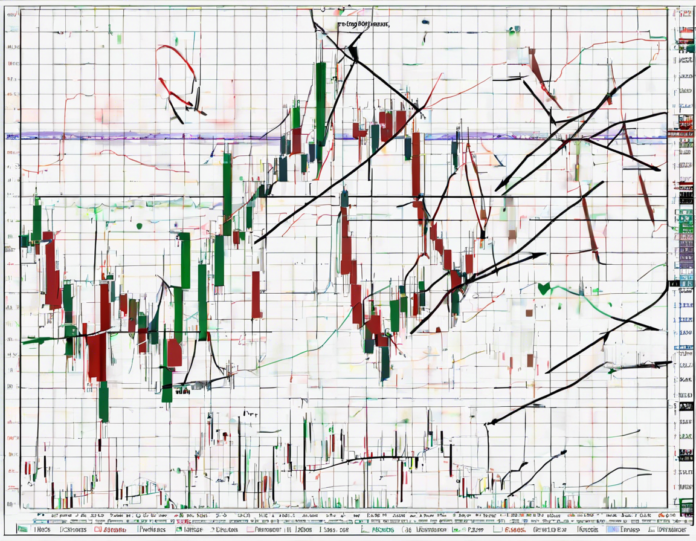Trading chart patterns is a popular strategy among technical traders to predict future price movements based on historical price patterns. These patterns can help traders identify potential entry and exit points and make more informed trading decisions. In this article, we will delve into some of the most common chart patterns, their characteristics, and how to interpret them effectively to enhance your trading skills.
Understanding Chart Patterns:
1. Head and Shoulders Pattern:
The head and shoulders pattern is a reversal pattern that indicates a potential change in trend. It consists of three peaks, with the middle peak being the highest (the head) and the other two peaks being relatively lower (the shoulders). Traders look for a break below the “neckline” to confirm the pattern.
2. Double Top and Double Bottom Patterns:
The double top pattern occurs when the price reaches a peak twice at a similar level before reversing, signaling a bearish trend. Conversely, the double bottom pattern occurs when the price forms two troughs at a similar level before reversing, indicating a bullish trend.
3. Ascending and Descending Triangle Patterns:
Ascending triangles are bullish patterns characterized by a flat top and rising trendline, indicating a potential breakout to the upside. Descending triangles, on the other hand, are bearish patterns with a flat bottom and descending trendline, suggesting a breakout to the downside.
4. Pennant and Flag Patterns:
Pennant patterns are continuation patterns formed after a strong price movement, characterized by converging trendlines. Flags, similar to pennants, are also continuation patterns but have a rectangular shape. Traders anticipate the price to continue in the direction of the previous trend after a breakout from these patterns.
Tips for Trading Chart Patterns:
-
Confirmation: Look for confirmation signals like increased volume or a break above/below a specific level to validate the pattern.
-
Risk Management: Set stop-loss orders to limit potential losses in case the pattern fails to play out as expected.
-
Multiple Timeframes: Analyze chart patterns across different timeframes to confirm the pattern’s significance and increase the probability of successful trades.
-
Combine with Other Indicators: Use chart patterns in conjunction with other technical indicators like moving averages or oscillators for a more comprehensive analysis.
-
Practice Patience: Wait for the pattern to fully form before entering a trade to reduce the risk of false signals.
Frequently Asked Questions (FAQs):
1. What are the most reliable chart patterns for trading?
- Answer: Some of the most reliable chart patterns include the double top and double bottom patterns, head and shoulders pattern, and symmetrical triangles.
2. How long does it take for a chart pattern to confirm?
- Answer: The time taken for a chart pattern to confirm varies based on the pattern and the timeframe being analyzed. It can range from a few days to several weeks.
3. Can chart patterns be used in conjunction with fundamental analysis?
- Answer: Yes, traders often combine chart patterns with fundamental analysis to make well-informed trading decisions.
4. What should I do if a chart pattern fails to play out as expected?
- Answer: If a chart pattern fails, consider exiting the trade with a stop-loss order to limit potential losses and reassess the market conditions.
5. Are chart patterns a reliable indicator of future price movements?
- Answer: While chart patterns can provide valuable insights into potential price movements, they are not foolproof and should be used in conjunction with other forms of analysis for a well-rounded trading strategy.
In conclusion, mastering chart patterns requires practice, patience, and a thorough understanding of each pattern’s characteristics. By incorporating these patterns into your trading strategy and following the tips provided, you can enhance your ability to identify profitable trading opportunities in the financial markets. Be sure to download our free PDF guide for a more in-depth look at trading chart patterns and take your trading skills to the next level.




















